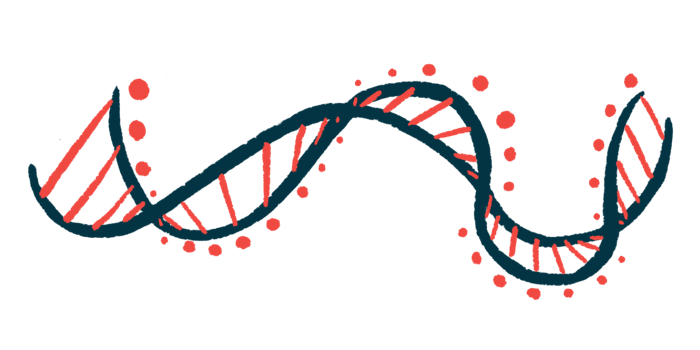Receptor for Hormone Oxytocin Less Marked in PWS Patients
Changes in the so-called 'feel-good' hormone also are affected in psychosis

There may be changes to how the “feel-good” hormone oxytocin works in patients with Prader-Willi syndrome (PWS) in general, and in those with psychosis, according to findings from a small study in Germany.
Researchers found that OXTR, the gene that codes for the oxytocin receptor, is not as methylated in patients with PWS as it is in neurotypical controls (those with typical neurological development). Methylation is a type of chemical marking (epigenetic modification) that involves the addition of a methyl group to DNA. It can define how the information in genes is used by cells without changing the genetic code itself.
They also found that methylation levels were lower in boys and men with PWS and psychosis, a mental health problem that causes people to lose the ability to understand what is real and what is not, than in those without psychosis.
NECDIN, a gene in the region of chromosome 15 that is missing or is faulty in patients with PWS, may be the piece that links the poorly methylated OXTR gene to how PWS and psychosis manifest in these patients, the researchers noted.
The study, “Distinct promoter regions of the oxytocin receptor gene are hypomethylated in Prader-Willi syndrome and in Prader-Willi syndrome associated psychosis,” was published in the journal Translational Psychiatry.
The hormone oxytocin plays a role in the reward system of the brain, which is turned on every time a person experiences something that is rewarding, such as pleasure from food.
Studies have shown that patients with PWS have fewer oxytocin-producing brain cells, which might contribute to their social and emotional problems and other symptoms linked to excessive eating.
Other studies have reported altered OXTR methylation in patients with psychosis, a mental health problem that shares at least part of its molecular signature with PWS and is common among those with the disease.
Here, the researchers wanted to know whether OXTR methylation may be altered likewise in patients with PWS versus neurotypical controls. They focused on its first exon (a region in a gene that contains coded information for making a protein) and intron — a non-coding region that is cut out before the protein is made.
To get DNA, the researchers collected blood from 31 patients with PWS (19 male and 12 female) and 14 controls (nine male and five female) who were matched for age, sex, and body mass index (BMI, a measure of body fat). Their mean age was 28 years, ranging from 12 to 55.
Of the 31 patients with PWS, seven (22.6%) had had more than one episode of psychosis and were experiencing mild symptoms at the time of blood collection. Six were male and one was female.
To watch for differences in the patterns of methylation, the researchers used bisulfite conversion, a method to reveal methylated building blocks.
They found that the mean methylation rate of the first intron of OXTR was lower in patients with PWS than in controls (27.6% vs. 31.6%). There were no differences between those who had coexisting psychosis and those who did not.
When the researchers looked at the first exon of OXTR, they found that the mean methylation rate was higher in males than in females (8.5% vs. 7.4%). For this reason, they compared males and females separately.
While there were no differences between patients with PWS and controls, the mean methylation rate of the first exon of OXTR was lower in males with PWS who also had psychosis, than in those without psychosis (7.1% vs. 9.5%).
Looking for links
Next, the researchers searched for a linking piece between the poorly methylated OXTR gene and the genetic causes of PWS. They found that E2F1, a transcription factor that helps switch OXTR on and off by binding to its first exon, is inhibited by a protein called Necdin.
Necdin is coded by a gene that resides in the region of chromosome 15 known as the PWS locus. E2F1 plays a role in how nerve cells (neurons) grow and mature, and Necdin helps prevent them from dying.
“This study provides evidence of a disruption of the Oxytocin system on an epigenetic level in PWS in general and in individuals with PWS and psychosis,” the researchers concluded.
While the underlying mechanism remains unknown, the researchers put forward two possibilities. One is that, in patients with PWS, the brain may compensate for the lack of oxytocin by having more receptors produced. Another possibility is that changes to how the information in OXTR is used could lead to the development of psychosis in patients with PWS.







